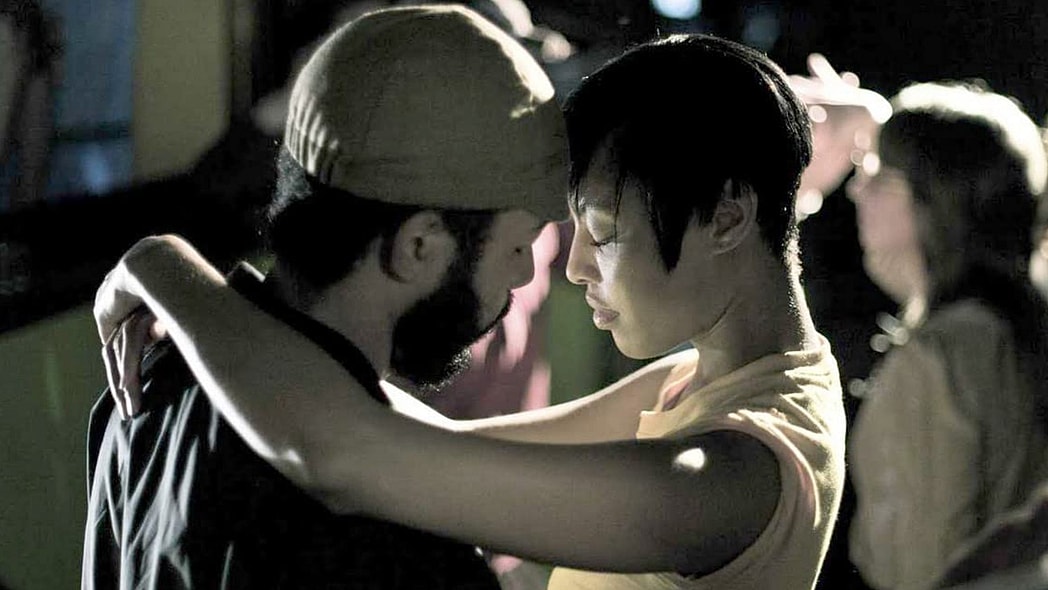“Just stay the night. Go back to your normal life tomorrow.”
Every time I watch Medicine for Melancholy, I feel bad for Micah (Wyatt Cenac). He’s a Black dude in San Francisco who seems to be part of the hipster scene, who is frustrated with gentrification (and particularly in San Francisco, the movie’s setting and his hometown), who sees himself as a particular kind of Black man. As you can imagine, this makes it hard for him to meet Black women, who he seems to want to date because he has real issues with interracial dating, though it should be noted that the only ex-girlfriend the movie makes us aware of was…white. Micah is lonely, even if he is perhaps not alone in his world.
Enter Joane (Tracey Heggins), a Black woman Micah met and had a one-night stand with at a party they both attended. They end up spending the day together after she accidentally leaves her wallet in the taxi cab they shared and that leads to a whirlwind day of politics, emotions, yearning and pain. You see, Joane is dating a white man, which, over the course of the film’s hour and twenty-eight minutes, frustrates Micah more and more; in Joane, he sees a partner who is a Black woman who is part of the same scene he’s in. Joane sees herself as a woman who has certain likes and interests.
The first time I saw this movie, I was blown away by just how well Barry Jenkins, who wrote and directed it in 2006 (it premiered in 2008), was able to nail the identity dynamic of the two main characters. Micah is extremely preoccupied with race, always wanting to talk about Blackness and wanting Joane to think about her Blackness, probably because in the hipster world he’s part of, he doesn’t get that chance to do so in an intimate way often.
Joane, however, is somebody who is aware that she is Black but doesn’t like having to confine herself to the labels Micah seems to want to place upon them—especially when it comes to who she’s dating and what that means about who she is. What mostly blew me away about Jenkins’ directing was just how much he was able to do with open space; there are several minutes-long sections of the movie where there is no dialogue at all, just music and imagery used to tell the story. Even the color of the movie seems a little dull.
Micah seems almost tortured; it’s like he wants Joane in his life because he feels so alone, but he doesn’t realize that he’s turned her into a token at the same time. She even points out that he thinks they should be together because she’s Black, and I imagine that, unfortunately, this is truly how Micah feels. He’s longing for love and has found a proxy for what he’s looking for, and I imagine that it can’t be easy to be so invested in the Black condition while finding your music and social scene is not. That has to make finding love even more difficult.
And well, Jenkins nailed it.
By the time the movie comes to an end—every time—I feel so bad for Micah. Joane clearly likes him, but she’s in a relationship and she’s already indulged enough of her interests; she spent a whole day cheating on her boyfriend. Micah is attempting to hold onto something that he knows isn’t his for as long as he can.
I can’t say I entirely identified with Micah; I’ve never been part of any type of scene that wasn’t largely occupied by Black people. But he lives in San Francisco, and he and Joane spend a good amount of time discussing gentrification and how few Black people are actually in the scene of which he and presumably Joane are a part. The message of the film is very strong on revealing the different Black identities and how that can impact both your own self-identity (Micah points out that he views himself as Black above all else, which further makes Joane believe he’s too obsessed with being Black and not just being a person) and romantic prospects. I’d guess that Joane doesn’t find a lot of Black men in her circles either. So when they find one another, according to Micah, necessity and racial solidarity almost require them to give love a shot. It’s really quite deep.
But like most folks trying to make love happen because it should not because it can, Micah will have to continue his search, which for him will probably turn him into the person he is railing most against: the Black man pissed at the conditions Black people are in while dating interracially to satisfy his emotional needs.
For a day, he had what he thinks he wanted; tomorrow he’ll go back to his normal life.

Panama Jackson is a columnist at theGrio. He writes very Black things and drinks very brown liquors, and is pretty fly for a light guy. His biggest accomplishment to date coincides with his Blackest accomplishment to date in that he received a phone call from Oprah Winfrey after she read one of his pieces (biggest) but he didn’t answer the phone because the caller ID said “Unknown” (Blackest).
TheGrio is now on your TV via Apple TV, Amazon Fire, Roku, and Android TV. Please download theGrio mobile apps today!


